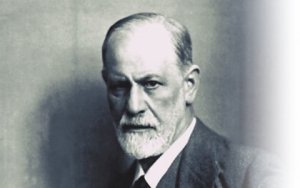Freud on Developing a Strong Sense of Self


Written and verified by the psychologist Valeria Sabater
Sigmund Freud believed that if you have a strong sense of self (ego), you’re capable of understanding your own needs and also intuiting the limits that society puts on you. If you have a strong sense of self, you can move freely through life. You won’t have any problem recognizing your internal repression and you’ll be satisfied and fulfilled in your day-to-day life.
We should start by saying that many of the foundational psychoanalytic ideas aren’t valid anymore. Concepts like penis envy or feminine hysteria are obsolete. Nevertheless, psychoanalysis has managed to stay relevant by embracing new ideas and adapting to modern times.
The Viennese Quack
In his day, Freud’s ideas were new and risky. One of his nicknames was “the Viennese Quack” because people thought his techniques were too crazy. Nevertheless, the fire he set all those years ago is still burning, although it has lost some of its heat. Studies like this one from Linköping University in Sweden show that psychoanalysis’s main problem these days is how long the treatment takes.
This type of therapy requires four sessions a week for as many months or years as the patient needs. These days, people have a hard time making that kind of time commitment. Modern life is demanding and we’re used to instant gratification. Adjusting to such a long treatment plan isn’t always possible. This is why modern therapists rely much more on quicker therapies.
Sigmund Freud would be totally against that. He believed that one of the key goals of any psychoanalyst should be to work on the patient’s sense of self (ego). The psychoanalyst must turn this mental force into a healthy individual and heal any conflict that gets in the way of their freedom and well-being.
In order to do that, Freud believed that commitment, time, and a patient that was willing to go deep were required.
“Being entirely honest with oneself is a good exercise.”
-Sigmund Freud-

A strong sense of self in the middle of limiting mental forces
One of Freud’s most interesting works is definitely his book An Outline of Psychoanalysis. Interestingly, this is actually an unfinished book. When he wrote the book, Freud was in exile because of World War II. He was already quite old, and his health didn’t allow him to finish what ended up being a posthumous and revealing book.
The book was a synthesis of what he had already written about. However, he also used it to delve deeper into his most relevant theories. Some examples of those are the mental apparatus, interpretation of dreams, and psychoanalytic technique. The most important part of this book is the further definition of the concepts of “the id, the ego, and the superego”.
For the first time, the celebrated Viennese psychoanalyst delved into the idea of a strong sense of self and the human need to consolidate this sense of self within the mental architecture. Freud also said that it’s complicated to develop a healthy sense of self. Freud believed that that’s why many of us aren’t fulfilled, happy, or free.
Reasons why you haven’t developed a strong sense of self
There are two opposing forces that coexist inside of you. On one hand, there is the id, with its basic and elemental needs. On the other hand, you have the superego that reflects the internalization of society’s strict rules. The superego limits your desires, aspirations, and dreams.
- According to Freud, the id always needs something and always feels unsatisfied in some way. The id is anxious, restless, and doesn’t understand the past or the future.
- The superego, on the other hand, is a complex entity that makes us hold things back. It limits our freedom, controls our behavior, and crushes our dreams. The superego is a social and cultural entity that shapes us and represses the id.
- The ego, the sense of self, is in the middle of all of this. You can’t always fulfill your needs with the obligations, dreams, and desires that fit into society’s mold. That might be part of the reason why we often don’t want to develop a strong sense of self. What’s more, sometimes we feel fragmented and lost because of it.

How can I develop a strong, healthy, and happy sense of self?
In the book The Outline of Psychoanalysis, Freud explained that there are a series of factors that determine whether or not you can develop a strong sense of self. He proposed the following causes:
- Excessive dependence on your parents: Freud believed that children are taking longer and longer to mature and become independent people. They develop resolution and initiative much later on in life.
- Having a childhood and adolescence full of rules, punishment, and strict upbringing.
- Growing up without close and affectionate role models who facilitate optimal development.
As you can see, Freud believed that childhood is a very important time in a person’s life. Nevertheless, the truly valuable part of his posthumous work is the advice he gives to help develop a strong sense of self:

How to have a strong sense of self
- In order to have a strong sense of self (ego), don’t fight against your id or your superego.
- The point is to maintain a balance between these forces. You should try to achieve harmony between your needs and your responsibilities.
- For these two energies to get along, you have to shine a light on anything you have repressed or hidden inside you. While you work on this aspect of yourself, your hidden needs, motivations, and anxieties will come out. You should also deal with childhood fears, trauma, and memories that you haven’t processed yet.
- Freud also talks about how important it is to work on your independence. Once all of your different dimensions are there for all the world to see, you have to deal with them in a mature way.
- It’s possible that you believe you’ve never gotten what you deserve. This unresolved anxiety will follow you wherever you go. One way to have a strong sense of self is to free yourself from that need. After all, necessity leads to submission and illness.
In conclusion, many of Freud’s ideas are still relevant today and invite us to reflect on some important concepts. Strengthening your sense of self is something you have to work on every day for practically your whole life. Thus, just keep working on yourself. It’s completely worth it!
All cited sources were thoroughly reviewed by our team to ensure their quality, reliability, currency, and validity. The bibliography of this article was considered reliable and of academic or scientific accuracy.
- Freud, Sigmund (1998) Esquema del psicoanálisis. Madrid: Debate
This text is provided for informational purposes only and does not replace consultation with a professional. If in doubt, consult your specialist.








